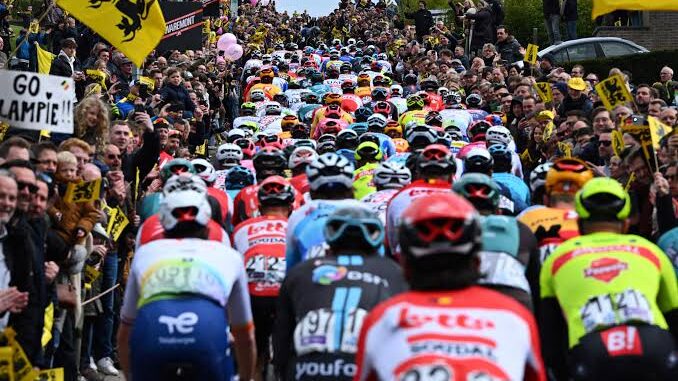
Breaking News: Belgian Cyclists Take a Break Amidst Mathieu Van Der Poel’s Struggles Due to Netflix Documentary Series…
In an unprecedented move that has shocked the cycling world, all Belgian cyclists have announced a collective break, citing the emotional toll brought on by the recent Netflix documentary series that focuses on the life of their prominent counterpart, Mathieu Van Der Poel. The documentary, which delves into Van Der Poel’s personal and professional struggles, has triggered a wave of reflection and anxiety among Belgium’s top riders, prompting a temporary hiatus from competition.
The decision, which was revealed in a joint statement from the Belgian Cycling Federation (BCF), has sent ripples throughout the international cycling community. According to insiders, the documentary, titled “The Weight of Pedals”, showcases the immense pressure Van Der Poel has faced over the years. From his struggles with mental health to the physical toll of elite competition, the series has painted a raw and unfiltered portrait of the highs and lows of one of the sport’s most celebrated athletes.
Van Der Poel, who has long been a dominant figure in both road and mountain biking disciplines, has faced a series of personal challenges, including a difficult family tragedy and ongoing injuries that have hampered his performances. The documentary sheds light on the less glamorous aspects of his career, revealing how these struggles have affected his mental and emotional well-being.
The timing of the documentary release has raised eyebrows, as it coincides with a particularly difficult phase in the sport for many cyclists. Belgian riders, who are often seen as fierce competitors and pillars of European cycling, have admitted to feeling the weight of Van Der Poel’s troubles more acutely due to the very personal nature of the documentary. In interviews, several Belgian cyclists expressed how the series has brought them to a crossroads, urging them to reassess their own lives and careers.
“Watching Mathieu go through all of this was eye-opening for me,” said one Belgian cyclist, who spoke anonymously. “We’re all dealing with pressures that no one sees, and seeing someone so talented struggle made me realize that we need to take care of ourselves mentally, not just physically. It’s a wake-up call.”
The Belgian Cycling Federation has shown strong support for the athletes, emphasizing the importance of mental health in the sport. The federation’s president, Olivier Demeulemeester, stated, “We fully support our athletes’ decision to take a break. Mental health is just as important as physical health, and we encourage all of our riders to take the time they need to recharge and reflect.”
While the decision has been met with mixed reactions, many fans and experts in the cycling world have expressed concern about the future of Belgian cycling. “Belgium has historically been a powerhouse in the sport,” said cycling analyst Lieve Jansen. “But the mental strain that these athletes are facing is becoming more apparent. It’s a reminder that cycling, like any sport, is about more than just physical endurance—it’s about the mental strength to persevere through challenges.”
Despite the break, the Belgian riders remain committed to the sport and have promised to return to competition once they have had time to rest and recover. Some have already hinted at a potential change in how they approach their careers going forward, with a renewed focus on mental wellness.
In the wake of this unexpected move, cycling fans around the world have rallied around the Belgian team, offering their support and understanding. Many hope that this time off will allow the cyclists to heal and return stronger, not just on the roads but also mentally, as they continue to push the limits of the sport.
As for Mathieu Van Der Poel, he has not publicly commented on the break taken by his Belgian counterparts. However, sources close to him have indicated that he is appreciative of the solidarity shown by his fellow athletes, even as he continues to work through his own personal challenges.
The cycling world will now wait to see how this bold decision affects the Belgian team’s future performances and the broader conversation about mental health in professional sports.



Be the first to comment